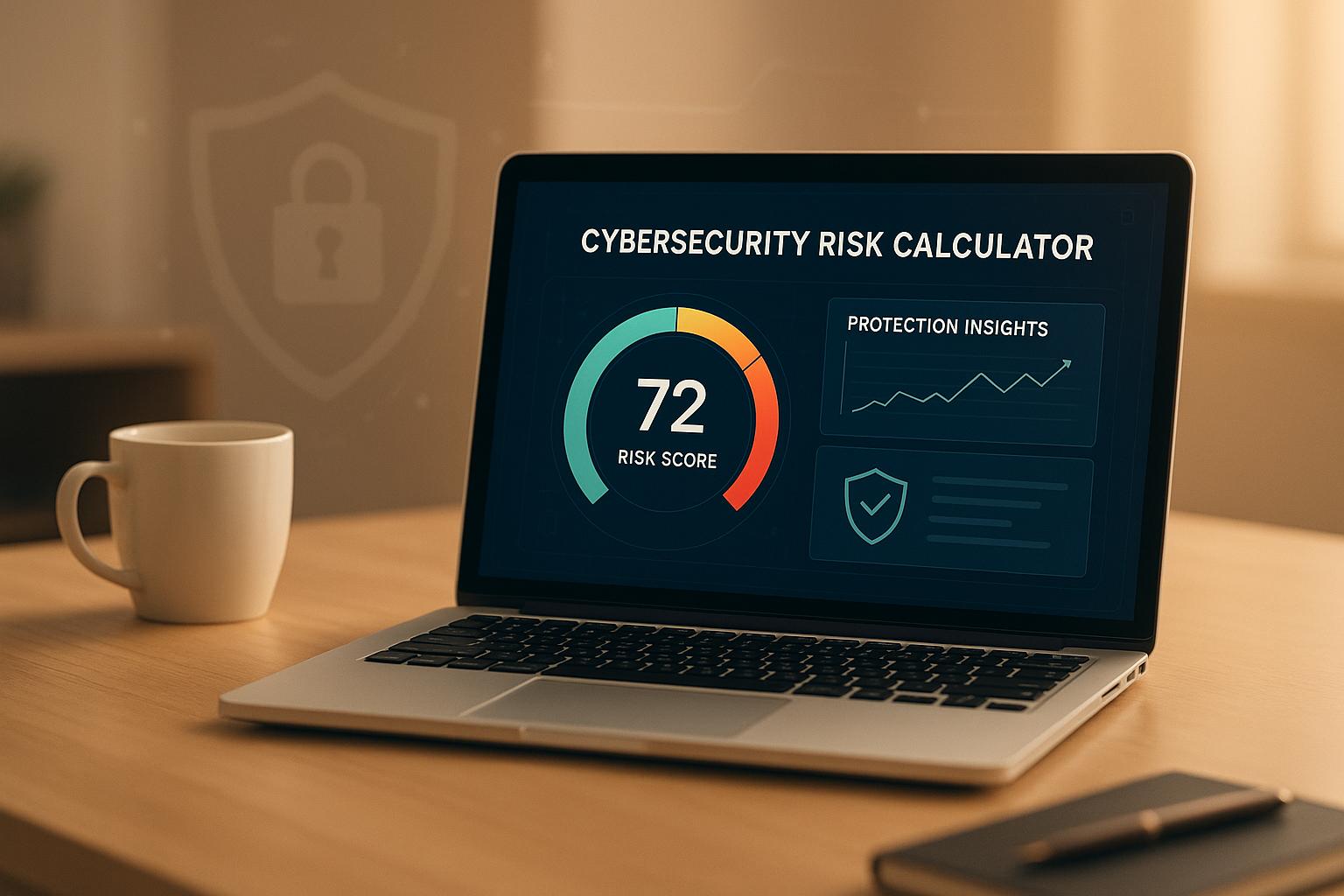Security Analysts and Security Engineers are two key roles in cybersecurity, each addressing threats in unique ways:
- Security Analysts: Focus on monitoring systems, investigating alerts, and responding to incidents. They act as digital detectives, analyzing potential threats and recommending solutions to improve security.
- Security Engineers: Design and implement the infrastructure that protects organizations. They build security systems, conduct vulnerability testing, and ensure compliance with security protocols.
Job Market & Salaries:
- Security Analysts: Average salary of $124,910/year (2024) with growing demand (457,398 U.S. job openings by 2025).
- Security Engineers: Higher average salary ($143,992/year) due to technical expertise.
Key Skills:
- Analysts: Incident response, threat detection, and communication.
- Engineers: System architecture, encryption, and penetration testing.
Choosing Your Path:
- Enjoy investigating threats? Consider becoming a Security Analyst.
- Prefer building secure systems? Security Engineer might be a better fit.
Both roles are essential in the fight against growing cybercrime, offering strong career prospects and high earning potential.
Cyber Security Analyst vs Engineer: Salary, coding, certs | Cyber Security Entry Level Roles 2021
What Does a Security Analyst Do?
Security analysts are like digital detectives in the world of cybersecurity. Their job revolves around keeping an organization’s digital assets safe from unauthorized access and cyberattacks. They spend their time monitoring networks, investigating suspicious activities, and determining whether a potential threat is real. It’s a straightforward mission, but one that’s absolutely critical.
Main Duties of a Security Analyst
The day-to-day responsibilities of a security analyst are diverse and demanding. They monitor networks for breaches, analyze alerts to gauge the severity of potential threats, and use tools like firewalls and encryption to protect sensitive information. Regular vulnerability assessments are another key part of the job, helping to pinpoint weaknesses in systems so they can be fixed before they turn into bigger problems.
Beyond reacting to threats, analysts also focus on prevention. They create and enforce security policies to ensure consistent practices throughout the organization. Security awareness training is another important task, aimed at educating employees on how to avoid falling victim to phishing, social engineering, and other common attacks. When incidents occur, analysts are on the front lines, working to contain breaches and eliminate threats.
These responsibilities demand a mix of technical know-how and sharp analytical skills - qualities we’ll dive into next.
Required Skills for Security Analysts
To excel in this role, security analysts need a strong technical foundation. This includes skills such as scripting, understanding security frameworks, intrusion detection, network security controls, operating system expertise, incident response, cloud computing, threat intelligence, and knowledge of regulatory compliance. On top of that, soft skills like communication, teamwork, risk management, adaptability, and critical thinking are equally important.
Most security analysts hold at least a bachelor’s degree in cybersecurity or a related field. According to Cyberseek, 55% of analysts have a bachelor’s degree, while 40% have pursued a master’s degree. Employers typically look for expertise in areas like vulnerability assessment, incident response, information systems, risk analysis, and security controls.
"You're going to see a critical eye [from employers], especially on the technical piece, on the ability to do the job. We also need leadership and management roles that are aware of the kind of cyber threats and the liabilities around them."
- Steve Graham, Senior Vice President Head of Product at EC-Council
Certifications can also make a big difference. GIAC Certifications data shows that cloud security skills, for instance, can lead to salary increases of over $15,000. Skills in areas like public cloud security, software security, threat hunting, SIEM, and threat intelligence are becoming more sought after. Since cybersecurity is always evolving, staying up-to-date with the latest trends, attack methods, and technologies is a must for anyone in this field.
Security analysts also rely on a range of specialized tools to apply their skills effectively, which we’ll explore below.
Tools Security Analysts Use Daily
Security analysts use a variety of tools to keep organizations safe, combining machine learning with human expertise to monitor systems in real time. One of the most common tools is SIEM (Security Information and Event Management) software, such as IBM QRadar and Elastic SIEM, which helps with centralized threat detection and incident response. Threat intelligence platforms like Recorded Future and ThreatConnect turn raw data into actionable insights.
Endpoint Detection and Response (EDR) systems are key for monitoring endpoints and catching threats that slip past traditional defenses. Network monitoring tools like AlgoSec, SolarWinds, and Security Onion scan traffic for suspicious activity, while Intrusion Detection Systems (IDS) like Snort and Suricata analyze traffic for malicious behavior. Vulnerability management platforms, such as Qualys, Nessus, and Rapid7 InsightVM, highlight system weaknesses before they can be exploited.
For forensic investigations, packet analysis tools like Wireshark, Tcpdump, and Windump help analysts inspect network traffic in detail. The importance of these tools was highlighted by the 2017 Equifax breach, which went undetected for 76 days and cost the company up to $700 million. As cyber threats grow more advanced, the global cyber threat intelligence market is projected to reach $15.8 billion by 2026, underscoring the increasing demand for cutting-edge security solutions.
What Does a Security Engineer Do?
Security engineers are the architects behind an organization’s cyber defenses. They design, implement, and maintain systems to ward off cyberattacks, always staying one step ahead by identifying potential vulnerabilities before they can be exploited. This proactive mindset is essential in today’s cybersecurity landscape, especially with demand for cybersecurity engineers projected to grow by 33% by 2033. Let’s break down their responsibilities.
Main Duties of a Security Engineer
Security engineers focus on creating and maintaining secure systems. This involves developing security architectures, implementing encryption programs, and designing protocols to protect sensitive data. They conduct vulnerability assessments and penetration testing to uncover weaknesses and strengthen defenses. Beyond technical tasks, they devise organization-wide security plans and lead incident response efforts to address threats swiftly.
According to Cyberseek, there are currently 41,333 security engineering jobs in the U.S., with an average salary of $143,992. These figures highlight the critical role security engineers play in safeguarding digital assets.
Required Skills for Security Engineers
To excel, security engineers need a solid technical foundation across various aspects of cybersecurity and IT systems. Key skills include:
- Network architecture and understanding system infrastructure
- Operating systems expertise, especially in securing platforms
- Encryption technologies for data protection
- Penetration testing to anticipate and counteract attacker strategies
- Familiarity with security frameworks and compliance standards for regulatory requirements
Most security engineers hold a bachelor’s degree in cybersecurity, computer science, or a related field. Professional certifications can significantly boost career opportunities and earnings. Popular certifications include:
- CompTIA Security+: $404
- CISSP: $749
- Certified Ethical Hacker (CEH): $950–$1,199
- CCSP: $599
Research shows that 91% of business leaders prefer candidates with certifications, and 86% of certified professionals found their credentials valuable when starting their careers. Notably, CISSP and CEH holders in the U.S. earn average salaries of $164,600 and $145,000, respectively.
Soft skills are just as critical. Security engineers must communicate complex technical ideas to non-technical teams, collaborate across departments, and think creatively to solve problems. Staying informed about emerging threats and technologies is also vital in this ever-evolving field.
Tools Security Engineers Use Daily
Security engineers rely on a wide range of tools to secure systems, identify vulnerabilities, and respond to threats. These tools fall into several categories:
- Network Security Monitoring: Tools like Argus, Snort, and PacketFence monitor network traffic and control access.
- Web Vulnerability Scanning: Solutions such as Indusface WAS, Burp Suite, and Acunetix detect weaknesses in web applications.
- Firewall Management: Software like AlgoSec, FireMon, and Tufin helps optimize firewall configurations.
- Encryption and Privacy: Tools like NordLocker and the Tor network ensure data encryption and anonymity.
- Penetration Testing: Utilities such as Wireshark, Metasploit, and Kali Linux simulate attacks to evaluate system security. Nessus, a popular vulnerability scanner, has been downloaded over 2 million times and identifies more than 59,000 vulnerabilities.
The real challenge for security engineers is aligning these tools with an organization’s specific security needs. By doing so, they not only reduce risks but also improve the overall efficiency and agility of IT systems. This proactive approach sets engineers apart from analysts, who typically focus on reacting to threats - a distinction explored further in the next section.
sbb-itb-8a31326
Main Differences Between Security Analysts and Security Engineers
While security analysts and security engineers share the common goal of protecting organizations from cyber threats, their roles, day-to-day tasks, and skill sets are distinct. Understanding these differences is essential for anyone exploring a career in cybersecurity, as each path requires a unique approach and mindset.
How Their Daily Work Differs
Security analysts and security engineers tackle cybersecurity from different angles - reactive versus proactive. Analysts act as digital first responders, constantly monitoring systems and networks for breaches. Their work involves investigating security incidents, analyzing system data for unusual activity, and separating genuine threats from false alarms. They also recommend updates to improve existing security measures, ensuring systems stay ahead of potential attacks.
Security engineers, on the other hand, are the architects behind an organization's cybersecurity defenses. They design, implement, and maintain robust security systems while ensuring compliance with regulations. Their daily tasks might include conducting network vulnerability scans, strengthening compliance protocols, and addressing security issues from a technical, systems-level perspective.
"The analyst fits into the security architecture of an organization for the specific job of understanding the organization's security", says Siyakha Mthunzi, Cyber Security Subject Matter Expert at the University of Adelaide.
"The cybersecurity engineer is the one who develops the security architecture of an organization", Mthunzi adds.
This contrast becomes evident when considering their approaches. Analysts focus on identifying and addressing problems as they arise, while engineers work to prevent these problems by building and maintaining secure systems.
Education and Career Paths
Both roles generally require a bachelor's degree, but their educational paths and career trajectories differ. Security analysts often come from backgrounds in computer science, information technology, or similar fields. Security engineers, however, typically require a deeper technical foundation, often with degrees in computer science, information systems, or engineering.
Certifications also vary between the two roles. Analysts often start with foundational certifications, while engineers pursue more advanced credentials that reflect their technical expertise.
The demand for both roles is growing rapidly. The U.S. Bureau of Labor Statistics predicts a 31% growth rate for information security analysts from 2019 to 2029. Meanwhile, the broader cybersecurity field is expected to grow by 33% between 2023 and 2033. This growth highlights the increasing need for both reactive monitoring and proactive system development.
Side-by-Side Comparison: Analysts vs. Engineers
The table below provides a concise comparison of the two roles:
| Aspect | Security Analyst | Security Engineer |
|---|---|---|
| Primary Focus | Monitoring and responding to threats | Building and maintaining security systems |
| Daily Activities | Investigating alerts, analyzing incidents, threat detection | Designing security architecture, implementing solutions, vulnerability assessments |
| Education | Bachelor's in Computer Science, IT, or related field | Bachelor's in Computer Science, Information Systems, or engineering |
| Work Style | Reactive, incident-focused | Proactive, architecture-focused |
| Salary Range | Typically lower than engineers | Higher due to technical expertise |
Both roles are critical in addressing the growing challenges of cybersecurity. For example, the Australian Cyber Security Centre reported over 67,500 cybercrime incidents in 2020–21, averaging one report every eight minutes. Analysts and engineers tackle these challenges from different perspectives: analysts as the vigilant responders, and engineers as the architects of robust defenses.
How to Choose Between Security Analyst and Security Engineer
Deciding between a career as a security analyst or a security engineer boils down to your personal interests, technical abilities, and long-term goals. Both roles are essential in the ever-expanding field of cybersecurity, but they require different strengths and approaches to tackling challenges.
Things to Consider When Making Your Decision
Start by reflecting on your preferred work style and what excites you professionally. Security analysts are detectives of the cybersecurity world, investigating real-time data to identify threats and separate them from false alarms.
On the other hand, security engineers take a proactive approach. They design and implement systems to prevent security issues before they arise. If you enjoy building systems, tackling long-term projects, and solving problems before they happen, engineering might be a better fit for you.
Your problem-solving style is another key factor. Security analysts need to be sharp thinkers with strong analytical and communication skills, along with a firm grasp of security frameworks, protocols, and best practices. Meanwhile, security engineers require technical expertise, programming skills, and project management capabilities, as well as a deep understanding of security architectures and tools.
The daily work environment also varies significantly between the two. Engineers focus on creating and maintaining secure systems, while analysts are tasked with monitoring those systems to detect vulnerabilities and suggest improvements. Although analysts work closely with these systems, the responsibility for regulatory compliance typically rests with engineers.
If you’re someone who enjoys coding, system design, and working with intricate technical frameworks, the engineering route may align more with your skills and interests. Ultimately, your decision should balance your personal preferences with the market trends and earning potential of each role.
Job Market and Salaries in the U.S.
The cybersecurity job market is booming, offering plenty of opportunities for both roles. Information security analysts are among the top 15 fastest-growing professions globally through 2030, with networks and cybersecurity ranked as the second fastest-growing skill category worldwide. In 2025 alone, there were 457,398 cybersecurity job openings across the U.S..
When it comes to salaries, security analysts earn an average of $75,511 per year, while the median annual wage for information security analysts reached $124,910 in May 2024. Security engineers, due to their technical expertise and system-building responsibilities, often earn higher salaries.
Earnings can also vary based on location and industry, with top-paying sectors including information services, enterprise management, and finance. Specializing in areas like cloud security, threat intelligence, or security architecture can further boost your career prospects.
How Root School Can Help You Start Your Career

With the growing demand for cybersecurity professionals, targeted training can give you the edge you need. Root School offers programs designed to build both foundational and hands-on skills for aspiring security analysts and engineers.
For those leaning toward the analyst role, Root School’s curriculum focuses on investigating security alerts, analyzing data, and distinguishing real threats from false positives. If engineering is your goal, courses cover system design, security architecture, and configuring key security tools.
Root School’s programs are tailored to help you discover which career path aligns with your strengths and interests, while also providing the technical knowledge required to succeed.
In addition to technical skills, Root School emphasizes soft skills like communication, problem-solving, and business understanding. This well-rounded approach ensures you’re prepared for the collaborative nature of modern cybersecurity roles. With certifications that meet industry standards, Root School can help you confidently step into your cybersecurity career.
Conclusion
Security analysts and security engineers play pivotal roles in safeguarding organizations against cyber threats, each bringing a unique approach to the table. As Siyakha Mthunzi from the University of Adelaide explains, "The analyst fits into the security architecture of an organisation for the specific job of understanding the organisation's security." He adds, "The cyber security engineer is the one who develops the security architecture of an organisation." These perspectives highlight the distinct yet complementary nature of these careers, offering valuable guidance for those considering their path in cybersecurity.
The choice between these roles often comes down to your skills and interests. If you enjoy investigative work - digging into alerts, analyzing potential threats, and responding to incidents - then a career as a security analyst might be your calling. On the other hand, if you’re drawn to creating and implementing security systems that form the backbone of an organization’s defenses, the role of a security engineer could be a better fit. With the field of cybersecurity expected to face a shortfall of 3.5 million professionals by 2025, both career paths promise excellent opportunities for growth and stability.
Your decision should align with your strengths. Security analysts need sharp analytical skills to interpret data and identify vulnerabilities, while security engineers require a deep understanding of system architecture to design effective defenses.
No matter which path you choose, staying ahead in this ever-changing field is essential. Cybersecurity professionals must continuously update their knowledge to tackle emerging threats, adopt new technologies, and follow industry best practices. The dynamic nature of this field demands a commitment to learning and adaptability.
To build the right foundation, targeted training is key. Programs like those offered by Root School provide hands-on experience and an industry-relevant curriculum, equipping you with the skills needed for either career path. Whether you’re drawn to the investigative side of cybersecurity or the technical design of security systems, these programs can prepare you to thrive in a field that combines technical challenges with the rewarding mission of protecting organizations from cyber threats. A strong start in cybersecurity sets the stage for a promising and impactful career.
FAQs
What is the difference between a Security Analyst and a Security Engineer?
A Security Analyst spends their time keeping an eye on potential threats by digging into security alerts and raw data. Their primary task is to figure out whether an alert signals a real threat or just a false alarm. Those with more experience often take it a step further, working to neutralize the threats they uncover.
Meanwhile, a Security Engineer takes on the job of creating and maintaining the systems and tools that analysts depend on. This includes setting up network security tools, SIEM (Security Information and Event Management) systems, and other critical infrastructure. While analysts respond to threats as they arise, engineers focus on building a secure environment to minimize risks in the first place.
In essence, analysts manage daily threat detection and response, while engineers lay the groundwork to ensure those efforts are effective.
How do I choose between a career as a Security Analyst and a Security Engineer?
Choosing between a career as a Security Analyst or a Security Engineer comes down to what excites you and where your strengths lie. If digging into data, investigating potential threats, and responding to security incidents sounds appealing, then stepping into the role of a Security Analyst might be your calling. Analysts focus on monitoring systems, sifting through raw security alerts, and pinpointing genuine risks.
On the flip side, if you’re more inclined toward creating and maintaining security systems, a Security Engineer role might suit you better. Engineers handle the design and upkeep of tools like network security systems and SIEM platforms, laying the groundwork for analysts to perform their tasks effectively.
Ask yourself: Are you more interested in solving puzzles and investigating threats, or does building and fine-tuning security systems resonate more with your ambitions? Your answer can guide you toward the right path.
What are the best certifications or educational paths for becoming a Security Analyst or Security Engineer in cybersecurity?
For those looking to become Security Analysts, certifications like CompTIA Security+, CompTIA Cybersecurity Analyst (CySA+), and GIAC Information Security Fundamentals (GISF) can be a great starting point. These credentials cover key areas such as threat detection, incident response, and core security principles - critical skills for excelling in this role.
If you're aiming for a career as a Security Engineer, certifications like CISSP (Certified Information Systems Security Professional), GIAC Security Essentials (GSEC), and CompTIA PenTest+ are worth pursuing. These programs focus on system security, penetration testing, and advanced security management, equipping you with the expertise to configure and oversee complex security systems.
No matter which path you choose, a strong grasp of cybersecurity fundamentals is crucial, and these certifications are highly regarded in the U.S. cybersecurity field as evidence of your expertise and commitment.


